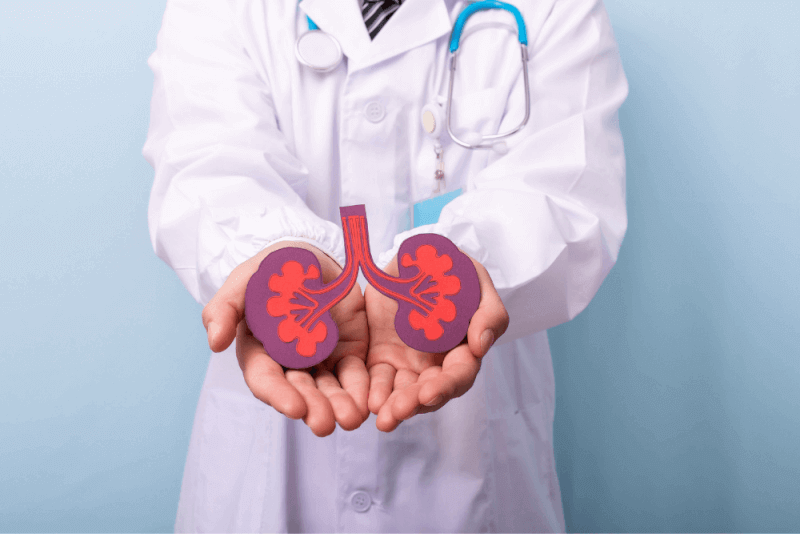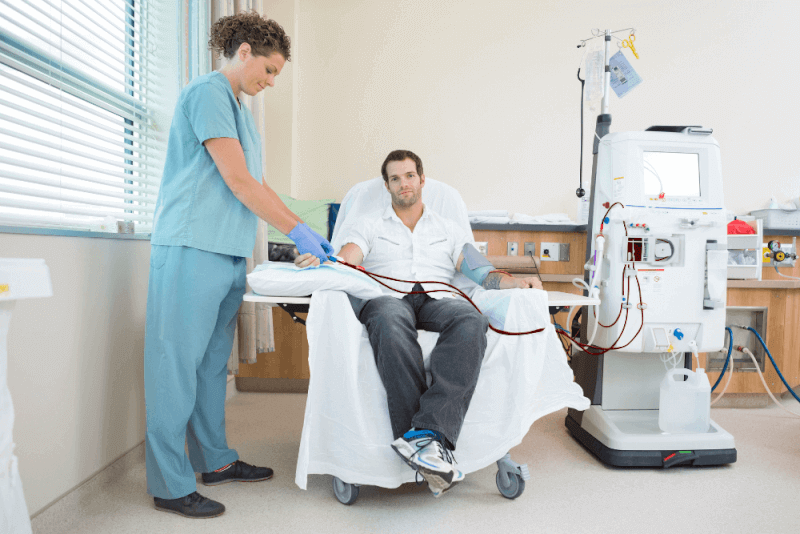What is FSGS?
Focal Segmental Glomerulosclerosis, or FSGS, is a disease that occurs in the scar tissue of the glomeruli, which are the parts of the kidneys that filter waste from the blood. FSGS is a serious condition that is treated with dialysis or kidney transplant. FSGS causes nephrotic syndrome, leading to symptoms such as protein in the urine, edema, and dark-colored urine.
Causes of FSGS
The causes of FSGS are generally unknown, but the disease can occur in both children and adults. Some known causes include:
- Infections
- Obesity
- Medications
- Sickle cell anemia
- Genetic problems
- Drug abuse
- Vesicoureteral reflux (backflow of urine from the bladder to the kidneys)
- Kidney diseases
- Diabetes
Symptoms of FSGS
Symptoms of FSGS become more distinct after a thorough examination. The symptoms may include:
- Edema
- High cholesterol
- High levels of protein in the urine
- Dark-colored urine
- Foamy urine
- High blood pressure
- Decreased albumin levels in the blood
- Weight gain
- Increased susceptibility to infections
Diagnosis Criteria for FSGS
To diagnose FSGS, the patient’s medical history must first be taken, followed by a physical examination and necessary tests. Physical examination may reveal edema and high blood pressure in the patient. In advanced stages of the disease, kidney failure occurs. Diagnostic methods include:
- Urine analysis
- Blood tests
- Kidney biopsy
- 24-hour urine monitoring
- Kidney function tests
Treatment Methods for FSGS
The treatment of FSGS depends on the stage of the disease, the patient’s age, and the presence of other conditions. The goal of treatment is to prevent kidney failure and improve the patient’s quality of life. The symptoms of the disease can be reduced to alleviate the problems experienced.
- Medications are used to reduce infection in the body.
- Medications that regulate blood pressure also help reduce protein in the urine.
- Diuretics are used to remove edema.
- A salt-free diet is implemented to reduce sodium, which helps control edema and blood pressure.
- A low-fat diet is followed.
- Dialysis is performed for patients who require it.
- Fluid restriction.
- Vitamin D supplementation.
- Kidney transplant is considered the last resort.
Types of FSGS
There are different types of FSGS. The type of FSGS varies depending on the underlying cause.
Classic FSGS
In individuals diagnosed with Classic FSGS, the underlying cause is usually unknown. It is also referred to as primary FSGS.
Cellular FSGS
Cellular FSGS affects cells such as foam cells, leukocytes, and debris material. Lesion typing should be performed to detect the cellular variant.
Tip Variant
The tip variant can be identified by lesions at the ends of the glomeruli. Sudden onset nephrotic syndrome is one of the symptoms.
Collapsing Variant
The collapsing variant can be identified by the proliferation of epithelial cells in at least one glomerulus.
Perihilar Variant
The perihilar variant is generally seen in primary FSGS. It manifests with glomerular hypertrophy.
Who is More Likely to Develop FSGS?
FSGS is more common in individuals with diabetes, sickle cell disease, obesity, and other kidney diseases. Identifying the underlying causes of FSGS is very important.
Treatment is usually aimed at alleviating the symptoms of the underlying disease. In some cases, FSGS can also be genetic. It is possible for a child to develop the disease even if neither parent is affected, due to recessive genes.








